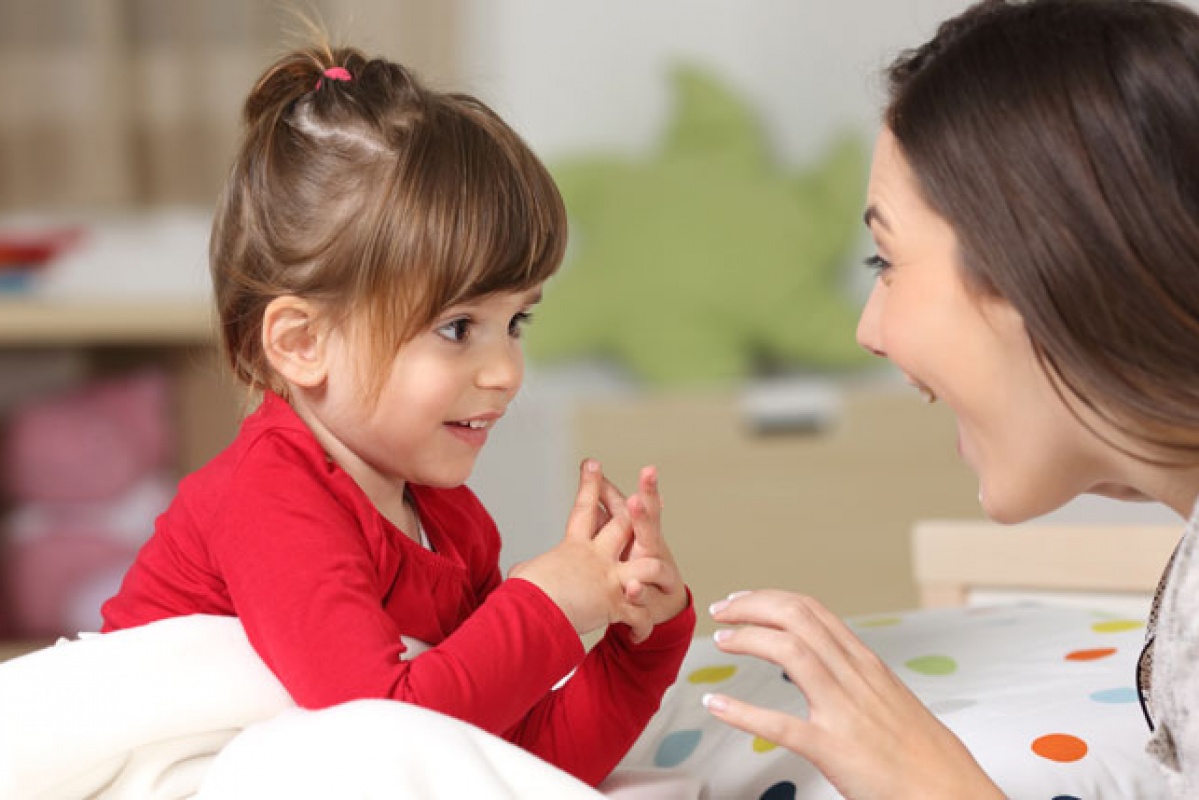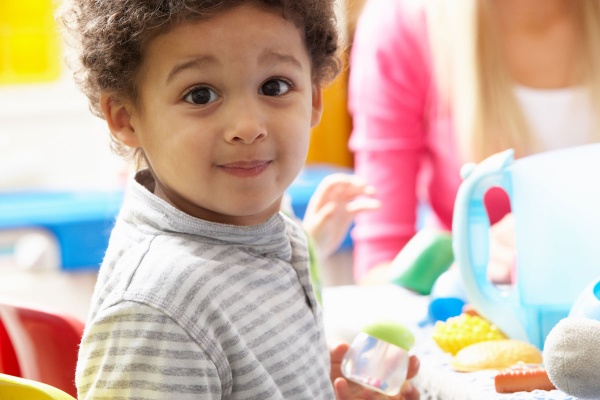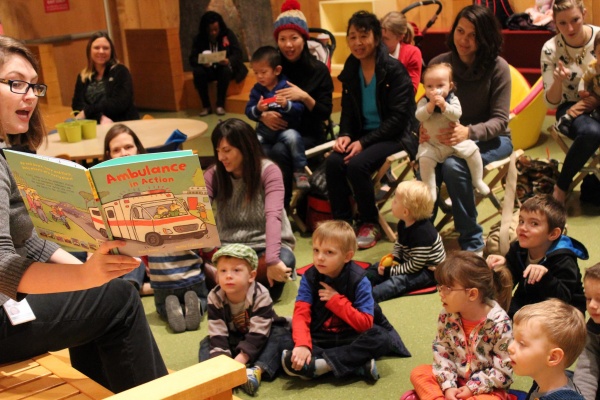

Want to Maximize Your Child's Learning Potential? Talk, Talk, Talk
Parents know they should read to their children. It’s the right thing to do to help them gain reading readiness skills. But did you know that talking to children is equally important in getting them ready for learning? It’s true. Talking to children from the day they’re born and gradually leading them into two-way conversations about their everyday world can mean the difference between success and failure in learning.
My husband and I both grew up in lower middle class families. Children were loved, but expected to stay quiet during adult conversation. And, the conversations were mainly about practical things like the work to be done or what we’d watch on television that night. When our parents spoke to us the words were usually directive, as in “Eat your peas” or “Don’t hit your sister.”
Luckily for my husband, he lived with his elementary teacher grandmother for the first ten years of his life. She did all the right things: she fed him good, nutritious food, taught him correct grammar and instilled in him a love for learning about the world—the stars, trees, flowers, birds, animals and more. She shared her knowledge with him and never stopped believing in him even though he was a “late bloomer” in school. She took the time to talk with him.
And me? My mother was a talker. My father was a quiet man, but my mother more than made up for that. She didn’t speak to my brother and me with the expectation of hearing our responses, but at least she talked a blue streak and we learned a lot of vocabulary. She had a sense of humor that lent itself to plays on words. She wrote little poems for office parties and family gatherings. She was a verbal whiz. In turn, I learned to love words.
So what, exactly, is the ideal home environment for later learning successes? Studies on key elements in children who learn quickly and do well in school clearly show that a home rich in talk is one of the essentials to later learning. Interestingly, the number of words spoken to children in a home increases with socio-economic status. The higher the education level of the parents, the more they engage in speaking to their children. And the quality of the language is higher, moving from only directive or disciplinary words to asking questions and talking about feelings, thoughts, goals, relationships and the like.
A landmark study begun in the 1960’s at the University of Kansas conducted by Todd Risely and Betty Hart uncovered remarkable information about the talk/learning connection. This team tracked 42 families by taping conversation in their homes an hour a month for two and a half years. The results were surprising. Low income children heard an average of 600 words per hour, working class children heard about 1200 and the children of professionals heard approximately 2100 words per hour. By age three the poorer children had heard thirty million fewer words than wealthier children.
What made this study so important was not just the initial tracking of language spoken in the home, but the later follow-ups on these children and their performance in school. The children from language-rich homes were more successful learners, and scored higher on IQ tests. The exciting thing was that when a lower income home did record more talking to children, those children also scored higher and did better in school. That’s good news because talk is free.
What does all this information mean for your home learning environment?
You can give your child a boost in language learning. Much of the language experience can take place while reading to your child. Books lend themselves to many forms of language experience and you can begin the day your baby is born. Singing songs, reciting nursery rhymes, engaging in word games such as How Big is Baby? Soooo Big, all of these provide rich learning for your child.
Talk to your child throughout the day. With older children make it a point to ask questions that are open-ended. What is your favorite color? Why are you feeling happy, angry, afraid? What was the best thing that happened today? Take opportunity to praise your child appropriately. (You’re right, that is a dinosaur. Can you find another one?) You respond to their speech and add a bit more.
If you grew up in a home that didn’t do a lot of talking, you might find it a stretch to add to the number of words spoken to your children. But know that words are free and you are doing a wonderful service to your child’s language awareness and future learning success. So talk, talk, talk—your child will benefit from it.
Jan Pierce, MEd, is a retired teacher and freelance writer who specializes in parenting, education and family life. She is the author of Homegrown Readers: Simple Ways to Help Your Child Learn to Read.





















